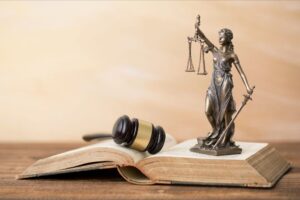
By Michael J. Crowley
Blame it on former torts megastar Tom Girardi and his confederates, coupled with his wife, Erika Jayne, star of Real Housewives of Beverly Hills. Girardi’s alleged theft of millions from clients’ trust accounts led to adverse publicity, and a push from the California legislature which led to action by the State Bar instituting the so-called “snitch rule.” Rule of Professional Conduct 8.3. We all suffer due to the actions of a few.
Already we have had to suffer through the inscrutable questionnaires concerning our trust accounts as a result of this debacle. Now, we have to face a daily concern about judging our colleague’s misconduct because we now have a duty to report them to the State Bar under this rule. It is now a violation for us to fail in our duty to report, i.e. “snitch,” on our fellow lawyers. The rule was promulgated by the California Supreme Court after tweaking what the State Bar had sent to it for approval. California had long rejected the adoption of such a rule, including in 2018, when the rules were completely revamped. One can only surmise the public pressure on the legislature led to the fast-track adoption of the rule by the State Bar and Supreme Court.
So, let us break it down. The operative part of the rule states:
“A lawyer shall, without undue delay, inform the State Bar or a tribunal* with jurisdiction to investigate or act upon such misconduct when the lawyer knows* of credible evidence that another lawyer has committed a criminal act or has engaged in conduct involving dishonesty, fraud,* deceit, or reckless or intentional misrepresentation or misappropriation of funds or property that raises a substantial* question as to that lawyer’s honesty, trustworthiness, or fitness as a lawyer in other respects.”
The emphasis in bold is mine. The asterisks are the rule’s way of telling you they have provided a further definition in Rule 1.0.1. For example, “knows” in the second line of the rule means “actual knowledge of the fact in question. A person’s* knowledge may be inferred from circumstances.”
Since this rule is brand new, there are plenty of ambiguities to deal with. For example, Comment 4 to the rule states:
[4] This rule limits the reporting obligation to those offenses that a self-regulating profession must vigorously endeavor to prevent. A measure of judgment is, therefore, required in complying with the provisions of this rule. The term “substantial* question” refers to the seriousness of the possible offense and not the quantum of evidence of which the lawyer is aware.
One might ask, what are those offenses that a “self-regulating profession might vigorously endeavor to prevent. One might ask what is the meaning of a “measure of judgment is, therefore, required in complying with the provisions of this rule.” These are phrases that will have to be defined by the interpreters of this provision, the Office of Trial Counsel, and eventually the courts.
What is undue delay? Is there time to investigate what you think may be a violation of the rule without violating the undue delay requirement. Assuming we can ascertain when there has been a “criminal act” (although how can we be sure of that), how do we ascertain what is “credible evidence?” It appears as though there is no duty to actually investigate before reporting, what we believe is a violation as that is done by the State Bar after the reporting.
What is “credible evidence” that raises a “substantial question”? It is somewhat defined in Rule 1.0.1 at section I, as “a material matter of clear and weighty importance.” The State Bar, in its guidance, cites to other states which have opined on the issue and provide, for example, violations that “directly implicate the integrity of the legal profession . . . Merely technical violations of the conflict of interest rules, for example, would not qualify, whereas destruction of evidence under subpoena, suborning perjury, or self-dealing with trust funds assuredly would.” (Oregon State Bar Formal Opinion No. 2005-95).
Keep in mind, attorneys always had the right to report another attorney’s misconduct, but now under this rule we have the obligation. Failure to report can subject you to discipline for that failure.
There are some limits on the duty to report. You are not required to report anything that would be confidential under attorney client or mediation privileges (additionally, other privileges may apply). If an attorney is undergoing treatment for substance abuse or mental health treatment no reporting is required. Consultations with other attorneys on the issues is an exception as are ethics hotlines.
Recognizing that I have may have raised more questions than I have answered, this Ethics in Brief is intended to bring this new rule to your attention. If you are faced with this dilemma of what to report, there are a great deal of materials at the state bar website that attempt to answer the most salient questions and the San Diego Court Bar Associations ethics hot line can help (go to the SDCBA website).